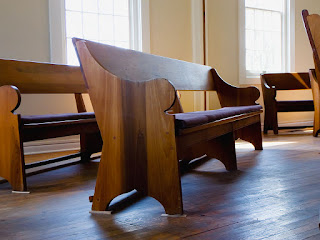In an earlier post, I suggested the idea that a
spiritual convincement
experience, involving a direct experience of the Divine, might be
something we could consider a prerequisite for membership. This
was not to advocate it as an actual change we should undertake right
now. There are lots of problems with the idea, though it is
attractive in principle. One of the problems is the experience of
those raised among Friends.
The thing is, when you taste something you have
never tasted before, particularly if it is a strong flavour, it is
strange, it's unmistakable. It grabs your attention and you really
know you've tasted it. If, however, the flavour has been familiar to
you since your childhood, you might barely be aware of it. This is a
major factor in culinary culture shock, noticeable even in something
as simple as an American and a Brit trying tomato ketchup made for
the other market. To me, American ketchup tastes unpleasantly sweet,
but to an American, British ketchup tastes like it's been spiked with
vinegar. When you get into things that are even more different, like
spices or seasonings that are characteristic of particular cuisines,
it is even more pronounced. Consider for instance kimchi, or the
Japanese umeboshi.
For the European palate, east Asian food is particularly apt for
examples.












